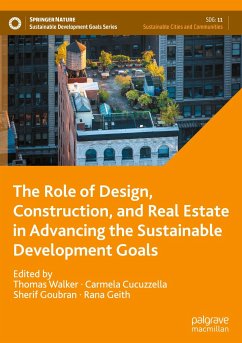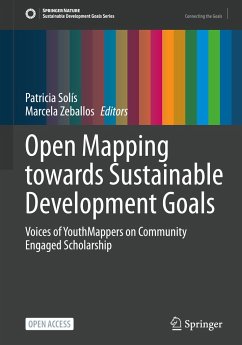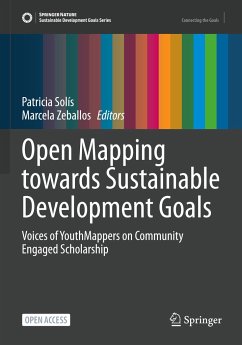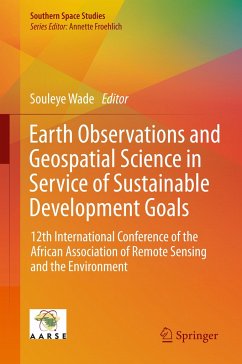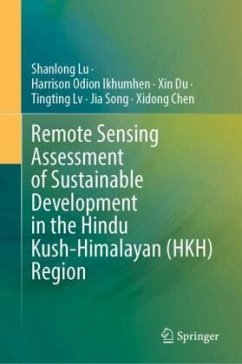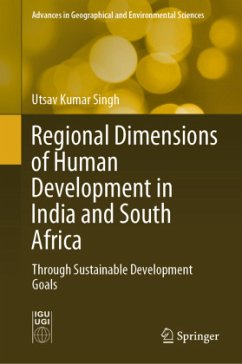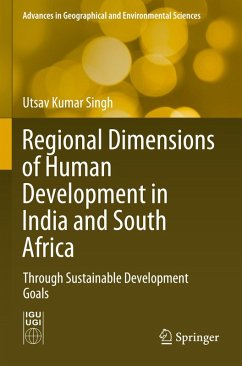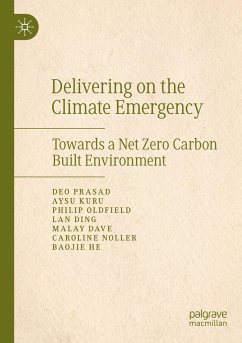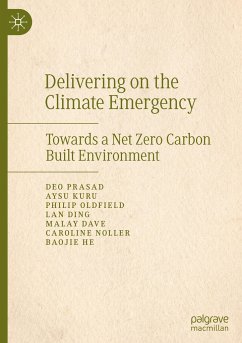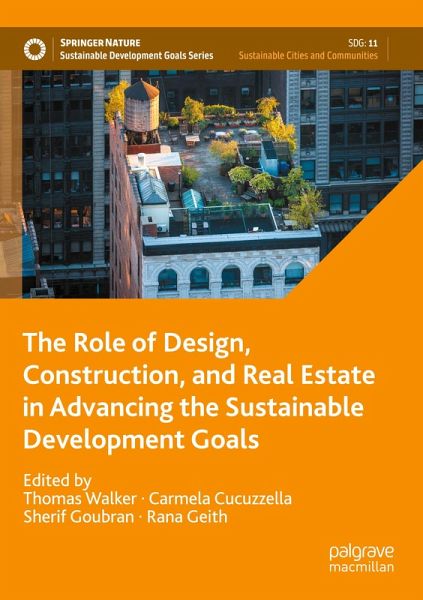
The Role of Design, Construction, and Real Estate in Advancing the Sustainable Development Goals
Versandkostenfrei!
Versandfertig in 1-2 Wochen
119,99 €
inkl. MwSt.

PAYBACK Punkte
60 °P sammeln!
This edited book brings together insights from scholars and practitioners from many different fields to uncover the role of the construction and real estate sectors and how they align with the Sustainable Development Goals (SDGs). It follows a lifecycle-based approach to the topic, addressing the design, construction, management, investment, and regulatory dimensions of projects in the area. It expands the reader's understanding of the built environment beyond the design and construction phases, which enables the collection to explore the links and transitions between different project phases ...
This edited book brings together insights from scholars and practitioners from many different fields to uncover the role of the construction and real estate sectors and how they align with the Sustainable Development Goals (SDGs). It follows a lifecycle-based approach to the topic, addressing the design, construction, management, investment, and regulatory dimensions of projects in the area. It expands the reader's understanding of the built environment beyond the design and construction phases, which enables the collection to explore the links and transitions between different project phases and uncover new methodologies that aim to tackle systemic sustainable development challenges. The chapters' comprehensive coverage allows the collection to capitalize on the strengths and weaknesses of the building industry, highlight emerging trends, and uncover some critical gaps that need to be addressed to attain the 2030 vision. This puts into perspective the interconnected nature of the SDGs and highlights the importance of multi-stakeholder collaborations in achieving them.



